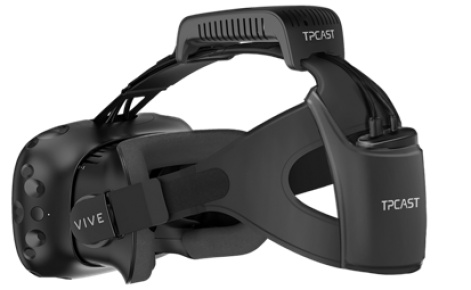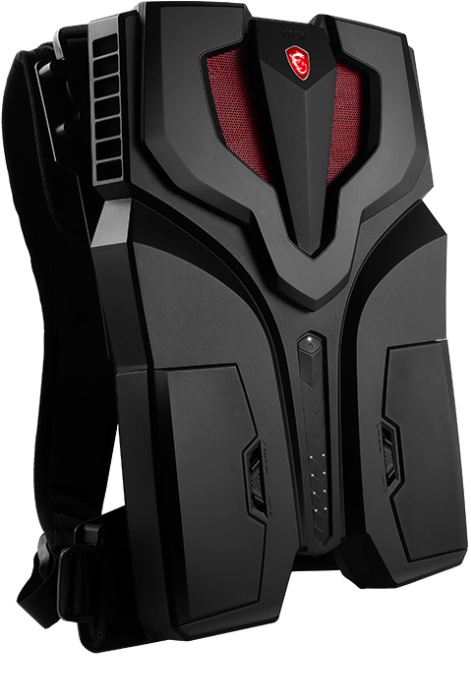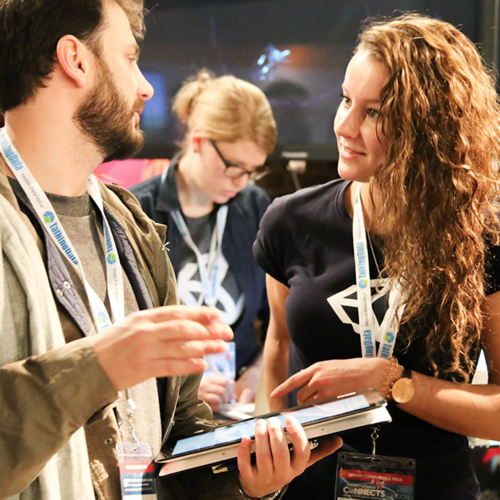We ask our industry panel - the brightest and sharpest VR professionals from around the world - one question about the VR industry, business, technology or trending stories every week. Here’s what they think about Vive’s new wireless upgrade kit.
HTC opened pre-orders last week for the Vive wireless upgrade kit. Consumers have been clamouring to cut the cable but at an additional $220, is going tether-free just replacing one barrier to entry with another? Can the market support a $1,019 device? Do you expect to see a big uptake for the add-on or should the Vive have been wireless from the outset?

Bertie Millis, Managing Director at Virtual Umbrella
“I think the key point to note is that this kit is an upgrade rather than a necessity. The Vive will still be a brilliant piece of kit, with or without wires. Consumer demand for wireless has been there from the beginning and it's only right that the demand is met by the market. Customers who buy this piece of tech likely won't be new Vive owners, they'll be people who have owned the kit for a while now. It's unlikely they'll be paying $1019 outright.
“We know there’s some sort technology advance from HTC being unveiled at CES in January and since TPCAST is part of the ViveX portfolio, I wouldn’t be surprised if it's the integration of this tech into the Vive 2. This will bring down the price as I can't imagine the new Vive being more expensive than the last, barring inflation.
“I don't think the Vive would have ever been wireless from the start; it wasn't till people owned the kits that the demand for wireless became large enough for TPCAST to work on a solution.”
First adopters can get a better experience without buying an entirely new device.Stephanie Llamas
Stephanie Llamas, Director of Research and Insights at SuperData Research
“First, it's important to note that this device is supported by HTC but is actually developed by Chinese company TPCast. Therefore, it has only been sold in China with no indication as to when it will be available in other countries.
“If it does come out in the west sometime soon, it will be a coup for the Vive as opposed to creating a larger barrier to entry. Those who do not have a Vive yet won't know if tethering is an issue until they have used the device consistently for a while. So I don’t think the Vive will be viewed as $1K+ device, but rather a device that can potentially be upgraded in the future. This means that in-between hardware cycles, first adopters can still get a better experience without buying an entirely new device.”
Shaun Williams, Managing Director at Mad About Games Studios
“It’s a great idea and will be well received by many. Wireless headsets were just a mere hope only a few months ago, so I think a £200 upgrade for wireless at a great 90 minutes battery life would be welcomed by those who have it to spare.”
Jonathan Wagstaff, Country Manager - UK & IE at CONTEXT
“For many early adopters who have probably already spent $2,000 or more on their PC in addition to the HMD, an extra $220 is not going to be a big blocker to purchase. Once you start to rise above the $1,000 mark the peripheral becomes more expensive than an entry-level PC and you're going to alienate potential customers who wouldn't be described as hardcore enthusiasts.
“On the B2B end, this is excellent news for commercial users of the headset and it calls into question the necessity for backpack PCs, such as those currently being developed by MSI. The VR experiences I've seen in public places often have to have the PC mounted in an inconvenient place (even hanging from the ceiling), so this news will be welcomed with open arms.
“The litmus test will be whether the wireless connection will be fast enough to remove any lag, which can add to motion sickness and disorientation.”

The whole industry benefits from this new technology!Justin Corcoran
Justin Corcoran, CEO at Phosphor Games Studio
“Based on the dozens of global arcade partners we’ve signed with for The Brookhaven Experiment - the vast majority of whom utilize Vive as their platform for choice, and all of whom need to spend significant amounts of money solving physical setup issues around headsets, wires, playspace, etc – I’d say this is a very welcome development for the platform, and VR as a whole.
“Being able to go wireless saves these physical locations from having to deal with the literal and figurative overhead costs of rigging, pulleys, boom arms and numerous other issues that likely add up to at least $220 per setup. The benefits for the mall pop-up VR vendor, or traveling VR experience, are even greater. “Valve, HTC and others all see the LBE (Location Based Entertainment) market as a significant early growth space for VR and a great way for the larger public to get a low cost of entry, high quality VR experience, and are making plans and investments to support it.
“99%+ of people may have their first VR experience this way, and it will be a far better one than if they had a wire dragging behind them, and they will come away happier about VR, so all in all, the whole industry benefits from this new technology!”

It bodes well for the second iteration of headsets.Simon Barratt
Simon Barratt, Director at Barog Game Labs
“The cable, with all of the headsets, is certainly something you get used to very quickly. However, this device - if it works as claimed (the specs reported seem to be varying between 2 and 15ms currently) - then not having the cable there would be great!
“It would mean less hassle both at home and when demonstrating at shows. Certainly as we’re trying to introduce people to VR, some do struggle with cable management and having tried a Gear VR with motion capture solution, it does feel really good to be completely untethered and have positional tracking! I think it bodes well for the second iteration of headsets with both this solution and inside-out tracking developing fast.”
Thomas Ormond, Digital Entertainment and VR/AR business Advisor
“Wireless should definitely have been an option day one for any of the major HMDs. Instead of that, they are following the traditional marketing product life cycle, starting with expensive devices, not necessarily adapted to mainstream, then progressively entering this mainstream by reducing pricing, adding options and so on.
“Everybody knows that wireless technologies are as efficient as cable ones, but an alternative is mobile! It’s wireless by nature, flexible, easy to wear and moreover, financially affordable. VR and AR require space by nature. Walking around a room, even a small one, requires flexibility. I am convinced that consumers expect that device to be available at affordable market price as well.”
The Vive isn’t the VR kit to break the consumer market.Dean Johnson
Dean Johnson, Head of Innovation at Brandwidth
“Let’s face it: unless you’ve already got a high-spec gaming PC, you’re loaded or a devoted early-adopter, the Vive isn’t the VR kit to break the consumer market. Add wireless capabilities and HTC have the best VR package on the market, but they still don’t have the virtual golden triangle of quality, price and audience - that’s Sony’s domain.
“But we live in a world where wired just isn’t acceptable. The heavy lifting still needs to be managed outside a VR headset, but everything will eventually be untethered, even if the first generation threatens to strangle us. Is $220 too steep? Not as a percentage of a potential $2,000+ package. Will it be popular? They sold out in minutes. Should it have been wireless from the outset? Not if it had forced HTC to hold launch back to November, especially with MKII ready for CES in January...”













